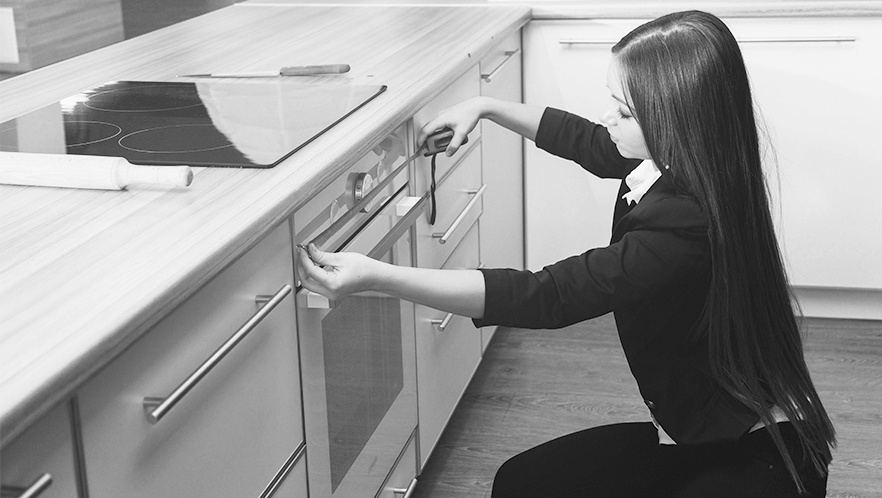Dishwashers
- An economy cycle feature uses less hot water – about 85% of a dishwasher’s electricity is used just to heat the water.
Dryers
- A “perma press” cycle tumbles clothes in cooler air for the last few minutes, to reduce wrinkling and save energy.
- A time control helps avoid over-drying and energy waste.
- An electronic moisture or temperature sensor will automatically shut the dryer off when clothes are dry – a great energy saver!
Electric Stoves
- Self-cleaning ovens can be up to 25% more efficient because they are usually better insulated than other models. When it comes to normal usage, the heat is distributed more evenly so less energy is consumed.
- Check to see that the oven door is well insulated and fits tightly. An oven window lets you check on food cooking without opening the door and letting heat escape.
Freezers
- Chest freezers are more energy-efficient than uprights and give you more usable space.
- Allow for about 85 to 140 litres (3 to 5 cu. ft.) per person.
- As with refrigerators, be sure to allow for the appropriate airflow space around the unit.
Refrigerators
- A refrigerator usually consumes the most energy in your home, so be sure to select the right size for your needs.
- What refrigerator size is the most energy efficient?
- For one or two people, about 340 litres (12 cu. ft.).
- For three or four people, 395 to 480 litres (14 to 17 cu. ft.).
- For each additional person, add about 55 litres (2 cu. ft.).
- Allow for 25mm (1″) of space on all sides so heat can move away from the compressor and condensing coil.
- When considering the various makes and models, choose a refrigerator with an energy-saver switch.
Washers
- A front-loading washer uses significantly less hot water and is much more energy efficient.
- Cold water wash and rinse cycles significantly reduce energy costs.
- A water level option and shorter, gentler cycles lets you do small loads and wash fine fabrics without wasting the energy needed to run a full cycle.
- Consider a compact model if your laundry loads are usually small.

